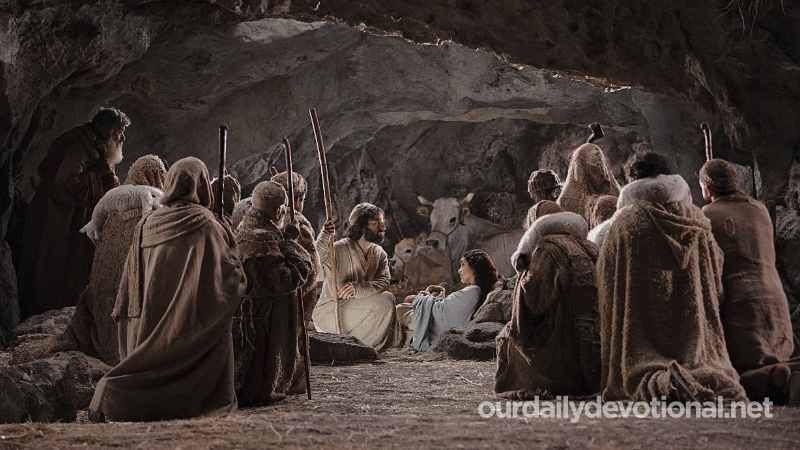War is the natural consequence of the presence of sin in the world, and of the greed of men and nations for what belongs to others (James 4:1-3).
It may also have the character, as in the Scriptures, of a judgment of God upon a land for its sin.
This is the character of Israel's conquest of the land of Canaan, as hosts of the Lord, and in their maintenance of their land, for which they had divine instructions.
In typology, their war is a figure of the Christian's conflict against principalities, powers, rulers of the darkness of this age, against spiritual hosts of evil in the heavenly places (cp. Eph. 6:10-20). There are also the wars against Israel, in which God used other nations to punish his people. But God always gives his own rights over his own people and over his own land.
When Jehovah destroyed Pharaoh's army at the Red Sea, he was called a "man of war," and this and other victories were recorded in "the book of Jehovah's battles" (Ex. 15:3; Num. 21:14). ). David said of God, “Who trains my hands for battle” (2 Sam. 22:35; Ps. 18:34).
When ready for battle, the Israelites consulted Jehovah (Judges 20:23, 27, 28; 1 Sam. 14:37; 23:2; 1 Kings 22:6). If conflict could not be avoided, they invoked God's help, sometimes offering a sacrifice (1 Sam. 7:8, 9; 13:12; 2 Chron. 20:6-12; 1 Mac. 3:47-54 ).
The pagans resorted to divination, taking care not to go into battle except on a day that was declared auspicious (Ex. 21:26-28). Scouts were sent to reconnoiter enemy territory to assess its resistance (Num. 13:17; Josh. 2:1, 2; Judges 7:9-11; 1 Sam. 26:4).
The prisoners were interrogated for information (Judg. 8:14; 1 Sam. 30:11-15). Before the battle, a priest, or the general of the army, reminded the soldiers of the presence of God. Some were returned to their homes (Deut. 20:2-9; 2 Chron. 20:14-20; 1 Mac. 3:56; 4:8-11).
Various tactics were used: surprise, ambush, simulated flight, siege (Gen. 14:15; Jos. 8:2-7; Judges 7:16-22; 2 Sam. 5:23). Sometimes enemy camps presented their champions (1 Sam. 17). The Israelite troops gave the signal of attack and invocation for God to give them help (Num. 10:9; Josh. 6:5; Judges 7:20; 2 Chron. 13:12; 1 Mac. 4:13 ; 5:33).
Like other ancient peoples, the Israelites plundered the enemy camp (Judg. 8:24-26; 1 Sam. 31:9; 2 Chron. 20:25; 1 Mac. 4:17-23), and sometimes They killed or mutilated prisoners (Josh. 8:23, 29; 10:22-27; Judges 1:6; 8:21; 2 Sam. 8:2). Generally, what was done was to reduce them to slavery.
Forces besieging a city cut off the water supply and fortified their own camp, fearing a departure from the besieged (Wars 5:2, 3). The enemy raised ramparts, and placed his battering rams against the gates of the city (2 Sam. 20:15; Ez. 4:2; see RAM), harassing its defenders with slingers and archers.
With the help of ladders placed on the elevated ramparts, which sometimes reached half the height of the walls, they were scaled (Judg. 9:52). Archers stationed on the siege towers and from the ground shot down the besieged, who defended themselves with arrows, stones, and flaming torches (Wars 5:2, 2 and 4; 6:4; 11:4; 2 Chron. 32:2 -5; 2 Sam. 11:21, 24; 2 Chron. 26:15; 1 Mac. 6:31).
The fall of a city entailed its destruction and the slaughter of its inhabitants, without respect to age or sex (Josh. 6:21, 24; 8:24-29; 10:22-27; 2 Kings 15:16 ). The victory was celebrated with songs and dances (Ex. 15:1-21; Judges 5; 1 Sam. 18:6; 2 Chron. 20:26-28; 1 Mac. 4:24).
There are still wars today, and the instruments of death are becoming more perfect every day. The heart of a humanity behind God has not changed, which will bring about the harsh judgments that will lead to the coming of the Lord to impose his kingdom.
Israel, established in the land in unbelief, is being persecuted by its enemies. The day will come when the world will unite at Armageddon to do battle on the great day of almighty God (Rev. 16:14, 16).
The Lord will reign until he has made all his enemies his footstool. Then will follow the period in which war will no longer be learned, when the instruments of war will be converted into implements of husbandry, and the Prince of Peace will reign over all the earth (Mi. 4:3).
Meaning of WAR
War is the natural consequence of the presence of sin in the world, and of the greed of men and nations for what belongs to others (James 4:1-3).







